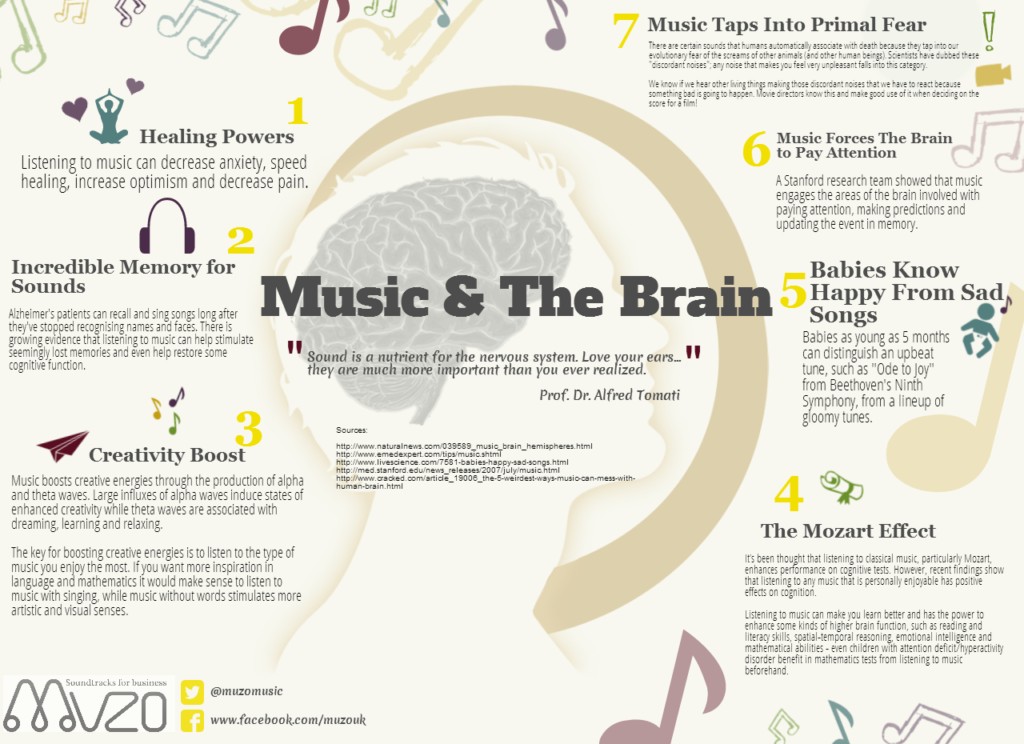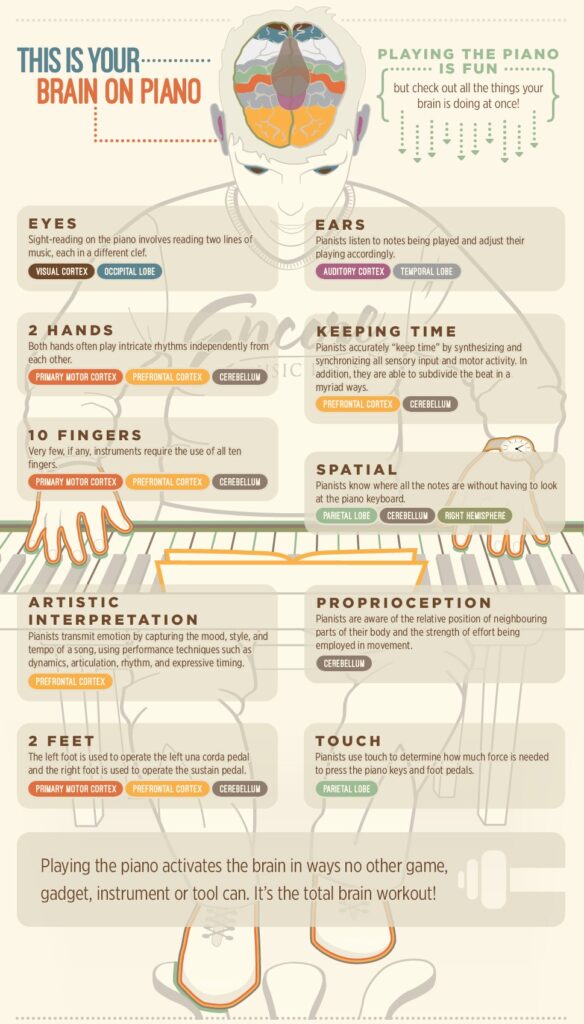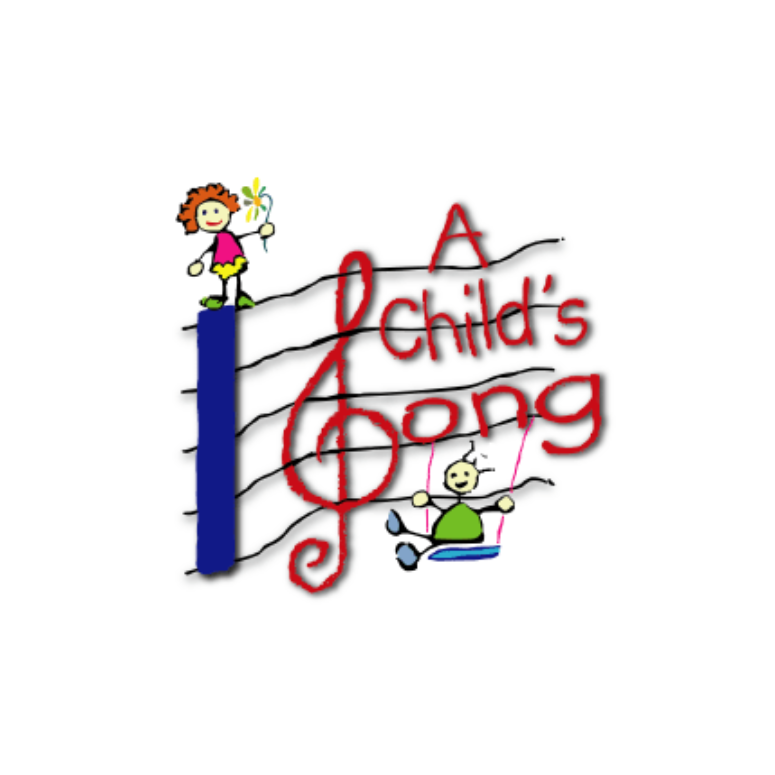Embracing music and learning to play an instrument can benefit you well into your golden years. Whether you’ve been playing music for years, or just pick up an instrument in retirement, the impact is still noticeable.
Here are 3 incredible ways learning music can improve your life after 55:
1. Music Enhances Memory
Songs are powerful. When we hear a particular song, love it or hate it, we often are transported back to events connected to it. And who hasn’t had a song get stuck in their head, destined to be singing it throughout the day.
Outside of our own practical experience with the power of music, various studies have sought out reasoning behind the how and why music can enhance cognitive abilities:
- A study conducted at UC Irvine showed that scores on memory tests of Alzheimer’s patients improved when they listened to classical music.¹
- Adults age 60 to 85 without previous musical experience exhibited improved processing speed and memory after just three months of weekly 30-minute piano lessons and three hours a week of practice, whereas the control group showed no changes in these abilities.²
- Parkinson’s Disease and Stroke: Rhythmic cues can help retrain the brain after a stroke or other neurological impairment, according to Michael Thaurt, director of Colorado State University’s Center of Biomedical Research in Music.
2. Music Improves Physical Wellbeing
Physical concerns are often one of the first to arise during aging, from mobility to sight and hearing complications. Enter music to help ease the transition!
Music keeps your ears young. Older musicians don’t experience typical aging in the auditory cortex, the part of the brain that often leads to hearing troubles. It’s never too late to start taking piano lessons and prevent these age-related changes.³
Studies done in the early 1990s at Bryan Memorial Hospital in Lincoln, Neb., and St. Mary’s Hospital in Mequon, Wis., concluded music “significantly” lowered the heart rates and calmed and regulated the blood pressures and respiration rates of patients who had undergone surgery.
3. Music Improves Your Overall Quality of Life and Mental Health
Physical and cognitive issues aside, music can improve your overall quality of life. No matter what is going on in life, tuning into your favorite songs or finding new sounds can set you at ease.
Research shows that music activities (both music listening and music making) can influence older adults’ perceptions about the quality of their lives. Some research has examined the effects of music listening on biological markers of health and subjective perceptions of wellbeing. Other studies on the psychological and social benefits associated with music making activities have demonstrated that participants often place considerable value on these “nonmusical” benefits of music activity.⁴
Stanford University School of Medicine conducted a study with 30 depressed people over 80 years of age and found that participants in a weekly music therapy group were less anxious, less distressed and had higher self-esteem.⁵
Want concrete proof of the benefits of music? Learn an instrument of your choice today!
- Drum Lessons at A Child’s Song
- Flute Lessons at A Child’s Song
- Guitar, Bass and Ukelele Lessons at A Child’s Song
- Piano Lessons at A Child’s Song
- Voice Lessons at A Child’s Song
Sources:
- Cheri Lucas, Education.com, “Boost Memory and Learning with Music,” pbs.org
- Nina Kraus, Samira Anderson, “Music Training: An Antidote for Aging?” Hearing Journal, Vol. 66, No. 3, March 2013).
- You Docs: Let the music make you healthier – Michael Roizen, MD and Mehmet Oz, MD
- Coffman, D. D. 2002. Music and quality of life in older adults. Psychomusicology, 18, 76-88).
- Friedman, “Healing Power of the Drum,” 1994




